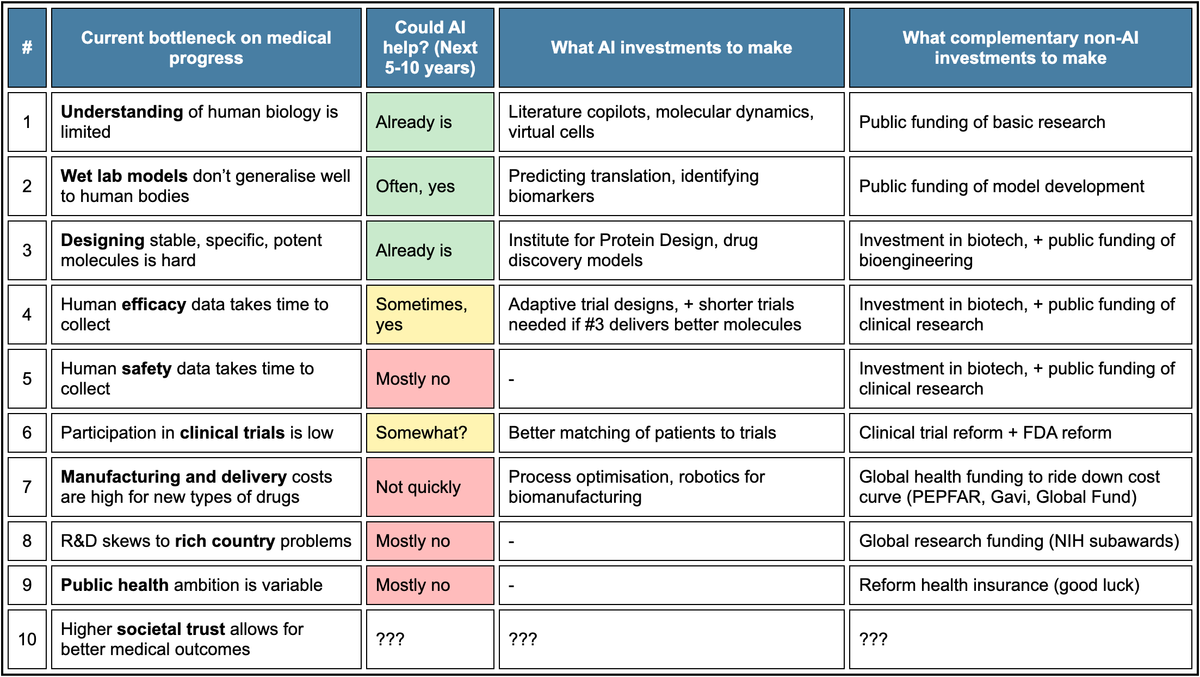What does AI progress mean for medical progress?

Rapid AI progress does not automatically mean rapid medical progress. If the point of AI progress is human flourishing, we must make other complementary investments too. Even with extremely powerful AI, people will still get cancer and Alzheimer’s – unless those investments are made, and unless broken “real world” systems are fixed.
These days my friends tend to think either that AI is overhyped, or that it will solve everything soon so there’s no point working on hard problems. Or they oscillate wildly between the two. On the time scale of the next 5 to 10 years, I do not believe either is true. And no one is capable of planning further ahead than 5 to 10 years anyway.
This piece is my attempt to jostle that malaise as it applies to the particular field I work in: medical research. No time for it, sorry, work to do!
There are bottlenecks that act on medical progress today, which together explain why we don’t already have cures for most cancers or Alzheimer’s. In the table above, I list ten such bottlenecks, with my best guesses at what AI will be able to help with or obviate.
I cannot predict the future, so some of those cells will turn out wrong, I just don’t know which. But I don’t think all bottlenecks on medical progress are equally AI-able in the next decade, and I don’t think all will become irrelevant. We can make educated guesses now about what the hold up will become.
My guesses are clinical data – especially safety data – that takes time to collect no matter how good our simulations are; scaling up reliable manufacturing of new treatments that are more complicated than small molecule drugs or proteins, then getting them to people without the need for specialist doctors or in-clinic monitoring; research predominance in rich countries leading to skewed knowledge and product availability; limited public health funding/ ambition/ management; and societal trust.